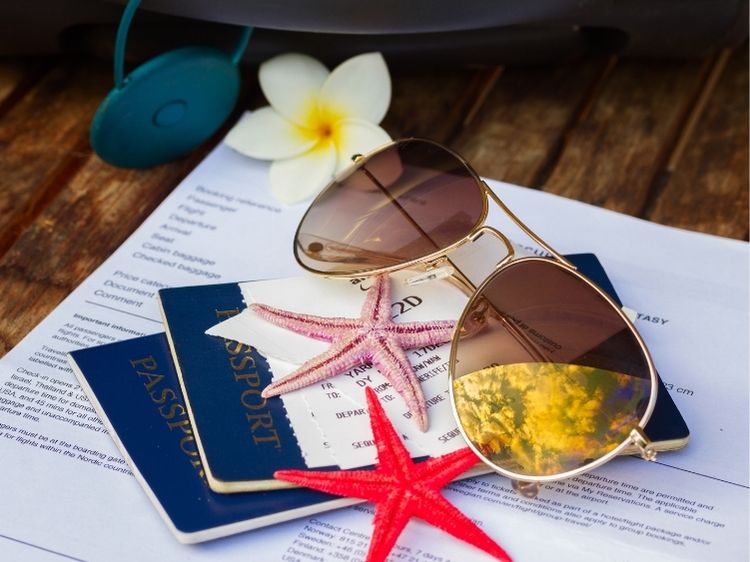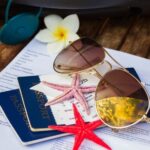Why Stay Updated on Jamaica Travel Advisories?
Jamaica is a Caribbean paradise, known for its stunning beaches, lively culture, and reggae rhythms. But before you pack your bags, staying informed on the latest travel advisories is key to ensuring a safe and enjoyable trip. In this article, we’ll dive into essential Jamaica travel updates, covering everything from safety tips to local health guidelines. So, grab a cup of coffee, and let’s get you ready for a hassle-free Jamaican adventure!
Current Safety Conditions in Jamaica
Traveling safely is all about understanding the lay of the land. When it comes to Jamaica, certain areas are bustling and safe for tourists, while others might require extra caution. Here’s a breakdown:
- Popular Tourist Spots – Areas like Montego Bay, Negril, and Ocho Rios are generally considered safe. These spots are highly monitored by local authorities due to the steady influx of tourists.
- Areas to Be Cautious About – Some neighborhoods in Kingston and Montego Bay have higher crime rates, especially after dark. When visiting, it’s best to stick to well-lit and populated areas.
- Respecting Local Customs – Jamaica is known for its vibrant culture, but being respectful of local customs and laws can go a long way in ensuring a smooth trip.
Pro Tip: Always stay informed on current local news. Situations can change quickly, and having the latest information at hand can help you avoid any unexpected issues.
Health and COVID-19 Guidelines for Travelers
Health protocols are crucial, especially with the world still feeling the impacts of recent global health events. Before booking your ticket, here are some key points to consider:
- COVID-19 Entry Requirements
- As of the latest update, travelers no longer need to present a negative COVID-19 test. However, this is subject to change, so it’s wise to check before departure.
- While mask mandates may be lifted, some private establishments may still enforce mask-wearing and sanitation rules.
- Medical Facilities and Insurance
- Jamaica has reputable hospitals and clinics, especially in tourist-heavy areas. However, it’s recommended to have travel health insurance that covers emergency care.
- Ensure you’re vaccinated for common travel diseases, such as Hepatitis A and B. Having access to your vaccination records might be helpful if there’s an emergency.
- Sun and Food Safety
- Jamaica’s sun is strong! Pack sunscreen with high SPF and stay hydrated.
- While Jamaican food is delicious, go easy on the street food if you have a sensitive stomach. Stick to bottled water to avoid stomach upsets.
Interjection: Whoa, let’s not forget the basics! It’s always a good idea to carry a small first-aid kit with essentials like band-aids, antiseptic wipes, and any medications you might need.
Transport and Getting Around Safely
Navigating Jamaica is pretty straightforward with various transport options, but some are safer than others. Here’s what you should know:
- Taxis and Private Transportation
Officially registered taxis are the safest option. Always verify the taxi service’s credentials before hopping in, especially in busier areas. - Public Transport
Public buses are affordable, but they can be crowded and may not follow strict timetables. Keep your belongings close and be aware of your surroundings. - Rental Cars
Renting a car offers flexibility, but remember, Jamaicans drive on the left side of the road! Roads can be narrow, so if you’re not comfortable with that, consider hiring a local driver.
Tip: Save your taxi company’s contact information for easy access. Many tourists find it safer to have a trusted driver on speed dial rather than hailing random taxis on the go.
What’s the Best Time to Visit Jamaica?
Jamaica’s tropical climate makes it a year-round destination, but here’s a quick guide on seasonal highlights:
- December to April – Peak tourist season with sunny weather and vibrant festivals. Prices are higher, but you’ll get to experience the island at its liveliest.
- May to November – This is the rainy season, with hurricanes possible in late summer. If you don’t mind occasional rain showers, you’ll find cheaper rates and fewer crowds.
Cultural Etiquette and Local Laws
When in Jamaica, embracing the local culture is half the fun! However, understanding cultural etiquette and laws will help you navigate the social scene smoothly:
- Greeting Etiquette – A simple “Good morning” or “Good afternoon” goes a long way. Jamaicans appreciate politeness.
- Photography – Always ask before taking pictures of people, especially in rural areas.
- Substance Laws – Though small amounts of marijuana are decriminalized for personal use, public smoking is still prohibited.
- Dress Codes – Beachwear is fine for the coast, but dress modestly in towns and especially at religious sites.
Remember: Respect the culture, and you’ll be met with warm Jamaican hospitality in return.
FAQ: Jamaica Travel Advisory – Your Questions Answered
- Is Jamaica safe for tourists?
Yes, many areas in Jamaica are safe for tourists, especially popular resort towns. However, like any destination, it’s wise to stay cautious, avoid risky areas, and follow local guidelines. - What documents are required for entry to Jamaica?
A valid passport is required for most visitors. For stays beyond 90 days, an extended visa may be necessary. - Do I need any vaccinations to travel to Jamaica?
There are no mandatory vaccinations, but it’s recommended to be vaccinated for Hepatitis A and B, as well as Typhoid, if you’re visiting rural areas. - Can I use US dollars in Jamaica?
Yes, US dollars are widely accepted, especially in tourist areas. However, you’ll likely get better rates using Jamaican dollars for local purchases. - What’s the emergency number in Jamaica?
Dial 119 for police assistance or any other emergency services.
Summary: Key Takeaways for a Safe Trip to Jamaica
- Stay Informed – Check for the latest updates on safety and health protocols before your trip.
- Choose Reliable Transport – Stick to registered taxis or private drivers to ensure safe travels around the island.
- Health First – Carry sunscreen, stay hydrated, and avoid tap water in rural areas.
- Respect Local Laws – Observe cultural norms and laws, and you’ll enjoy a smoother travel experience.
With these tips, you’ll be set to enjoy Jamaica’s natural beauty, lively culture, and friendly people without a hitch. So go ahead and start planning the ultimate Jamaican escape!
Authoritative Sources for Further Reading
- World Health Organization (WHO) Travel Advice: www.who.int/travel-advice
- Jamaica Tourist Board: www.visitjamaica.com
- U.S. Department of State Travel Advisory: travel.state.gov






